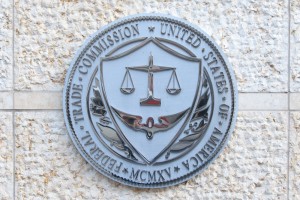 A suburban Philadelphia county is facing a judgment of up to $67 million after a Pennsylvania federal jury found that it violated the Pennsylvania Criminal History Record Information Act.
A suburban Philadelphia county is facing a judgment of up to $67 million after a Pennsylvania federal jury found that it violated the Pennsylvania Criminal History Record Information Act.
Pennsylvania’s Criminal History Record Information Act (“CHRIA”) governs the dissemination of records held by criminal justice agencies. It requires criminal justice agencies to expunge criminal history record information under certain circumstances. It also contains detailed restrictions on when a criminal justice agency can distribute criminal record information to agencies other than criminal justice agencies or to individuals. It provides that any person “aggrieved by a violation” of CHRIA “shall be entitled to actual and real damages of not less than $100 for each violation” and “not less than $1,000 nor more than $10,000” for each willful violation.
The Plaintiff in the case alleged that he had been arrested by the Bensalem Police Department in September of 1998 and was subsequently processed through the Bucks County Correctional Facility (“BCCF”). He then successfully completed a pre-trial rehabilitation program, which allowed him to file a petition for expungement under state law. He filed that petition, and the court issued an order of expungement in January of 2000.
Nevertheless, in 2007 BCCF created a website that made available to the public criminal history record information, including mug shots and booking photos, of individuals who had been placed in BCCF after their arrest, going back some 70 years. The information accessible on the website included information for individuals whose criminal records had later been expunged or whose charges had been dismissed. Plaintiff’s information was accessible on the website. Plaintiff alleged that a private business running websites named BustedMugshots.com and Mugshotsonline.com was able to gather the information from the BCCF website and make it available on its own website for a fee, without the consent of the affected individual.
As a result, Plaintiff filed a class action complaint on his own behalf and on behalf of others whose records had been expunged, yet their information was published on the BCCF website. He asserted claims under CHRIA against BCCF and the private websites. He also asserted claims against the private websites for the unauthorized use of his name or likeness and for false light invasion of privacy.
Plaintiff’s claims against the private websites ultimately failed. The Court dismissed the CHRIA and unauthorized use of name or likeness claims at the outset. The Court ruled that CHRIA, by its terms, applied only to criminal justice agencies. The websites, on the other hand, were private actors. Therefore, the Court concluded, the websites could have no liability under CHRIA. The Court also dismissed Plaintiff’s claim for unauthorized use of name or likeness, because Plaintiff failed to show that his name and likeness had “commercial value” as required under the relevant statute. While the Court allowed Plaintiff’s claim against the websites for false light invasion of privacy to move past the motion to dismiss stage, it ruled in favor of the websites on that claim at summary judgment. The Court ruled that Plaintiff had failed to produce evidence that the websites acted with actual knowledge or with reckless disregard for the falsity of the information about Plaintiff. To the contrary, the Court found that the websites had no obvious reason to doubt that the information provided on the BCCF website did not include expunged information.
Consequently, the case moved forward only with respect to the CHRIA claim against BCCF. The Court granted summary judgment in favor of Plaintiff on liability under CHRIA, finding that the distributed information was criminal record history information under “the unambiguous definition in CHRIA, Pennsylvania’s rules of statutory construction, relevant decisions by Pennsylvania courts, and the Attorney General’s CHRIA Handbook.”
Therefore, the only issues for trial were whether BCCF “willfully” violated CHRIA and to assess damages. The jury ultimately found that the violations were willful under CHRIA. It fixed punitive damages at the statutory minimum $1,000 per violation for the nearly 67,000 individuals whose records were unlawfully accessible on the website. The potential $67 million verdict, however, is the ceiling. The Court later will determine the exact number of class members who are eligible for the award. The ultimate number is likely to decrease once deceased class members are removed from the equation.

 One of the first questions a company must answer after it discovers and remediates a data breach is, “What do we tell our customers?” Companies may delay publicly announcing a data breach out of fear that doing so will harm their reputation with customers, leading to a loss of business. They may take an inordinate amount of time to make a public announcement, thinking their public statement must be “just right.” This is backward and outdated thinking. Rather, a quick public announcement of a data breach is an essential part of saving and rebuilding a company’s reputation after a data breach.
One of the first questions a company must answer after it discovers and remediates a data breach is, “What do we tell our customers?” Companies may delay publicly announcing a data breach out of fear that doing so will harm their reputation with customers, leading to a loss of business. They may take an inordinate amount of time to make a public announcement, thinking their public statement must be “just right.” This is backward and outdated thinking. Rather, a quick public announcement of a data breach is an essential part of saving and rebuilding a company’s reputation after a data breach.


 A three-judge panel of the Third Circuit recently affirmed a district court ruling that dismissed a suit for violation of the Fair and Accurate Credit Transaction Act of 2003 (FACTA) for lack of Article III standing. The plaintiff, Ahmed Kamal, alleged that receipts he received from J. Crew showed the first six and last four digits of his credit card number in violation of FACTA. The panel, applying the Supreme Court’s ruling in Spokeo, Inc. v. Robins, ruled that absent more, such an allegation of a “technical violation” is insufficient to demonstrate the concrete harm required to demonstrate Article III standing.
A three-judge panel of the Third Circuit recently affirmed a district court ruling that dismissed a suit for violation of the Fair and Accurate Credit Transaction Act of 2003 (FACTA) for lack of Article III standing. The plaintiff, Ahmed Kamal, alleged that receipts he received from J. Crew showed the first six and last four digits of his credit card number in violation of FACTA. The panel, applying the Supreme Court’s ruling in Spokeo, Inc. v. Robins, ruled that absent more, such an allegation of a “technical violation” is insufficient to demonstrate the concrete harm required to demonstrate Article III standing.

 Since the 1970’s, fair information practices (FIPs) or fair information privacy practices (FIPPs) have formed the framework around which organizations structure their policies on data collection, use, disclosure, and retention. The cornerstone of individual privacy rights under the FIPs is notice and choice, sometimes called notice and consent. That is, an organization should inform individuals about how their personal information will be processed and shared and proceed only when an individual agrees to such use. At first glance, these dual concepts may appear to adequately protect individual privacy. As the digital landscape has evolved, however, it has become apparent that the notice and choice paradigm fails to adequately protect individual privacy in important ways.
Since the 1970’s, fair information practices (FIPs) or fair information privacy practices (FIPPs) have formed the framework around which organizations structure their policies on data collection, use, disclosure, and retention. The cornerstone of individual privacy rights under the FIPs is notice and choice, sometimes called notice and consent. That is, an organization should inform individuals about how their personal information will be processed and shared and proceed only when an individual agrees to such use. At first glance, these dual concepts may appear to adequately protect individual privacy. As the digital landscape has evolved, however, it has become apparent that the notice and choice paradigm fails to adequately protect individual privacy in important ways. COPPA is a U.S. law enacted by Congress in 1998 to address concerns regarding the online collection and disclosure of children’s personal information. Children (defined by COPPA as individuals under the age of 13) may not appreciate the significance of sharing their personal information online. Therefore, the goal of COPPA is to put the power of children’s online personal information into the hands of their parents.
COPPA is a U.S. law enacted by Congress in 1998 to address concerns regarding the online collection and disclosure of children’s personal information. Children (defined by COPPA as individuals under the age of 13) may not appreciate the significance of sharing their personal information online. Therefore, the goal of COPPA is to put the power of children’s online personal information into the hands of their parents.
